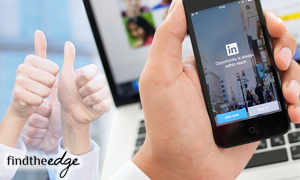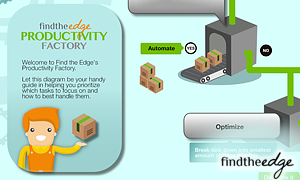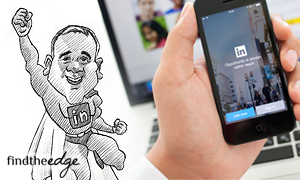 The internet has ushered in a new era of transparency, and if you're not open, the simple truth is you're becoming increasingly irrelevant.
The internet has ushered in a new era of transparency, and if you're not open, the simple truth is you're becoming increasingly irrelevant.
The lines between the online and offline worlds have blurred over the last decade. People have easy access to information about any topic – or person – immediately, and it’s fundamentally altered how we think.
Attention spans have shrunken, and everyone now expects to be able to access the information they want immediately. This includes information about you and your business.
If your audience can't get that information, they're going to grow frustrated, and it'll cost you money.
Social media's impact on society
The ease with which social media allows users to share information has meant it's now far more difficult for individuals to hide behind PR guff than it was in the past. People can now see through all the BS – as previously untouchable and powerful figures like Rupert Murdoch have discovered to their cost.
It's not just business where transparency has helped some individuals, while proving the downfall of others. The Arab Spring saw the false images many leaders had been able to construct of themselves – through state controlled media – come tumbling down around them.
Social media is a simple way for a huge group of people to connect and share information. As leaders across North Africa discovered, it's no longer as easy to silence dissenters, and to hide unpleasant aspects of behaviour or personality.
In business, these developments have presented a unique opportunity to you.
While it would be easy to fear the changes, actively embracing them can be a hugely powerful and liberating strategy.
Why is transparency important, and how can you use it to connect to your audience?
1. Your audience want accountability
Public confidence in big business has been rocked to its core by recent events like the financial crisis and energy scandals.
Go back 20 years and the banks were our authority figures. These days they are quite the opposite.
A YouGov study last year found that 60% of people had lost faith in their bank, 49% thought they were actively dishonest and 45% thought them incompetent.
A great deal of this frustration has stemmed from a lack of transparency and accountability in faceless organisations.
When you choose to run your business transparently, there are no hiding places. If you make an error, people will know. If you annoy a customer by delivering terrible service, people will know.
While this can seem daunting at first, it's a great selling point. By being transparent you're saying, ‘Yes, I will take full responsibility for my company because I believe in it.' Your audience will appreciate this, and feel a lot more confident in their dealings with you.
2. They need to be able to trust you
Being transparent also personalises a business, and transforms it from a faceless entity into a group of real people, who are doing their best to provide a good service.
At the end of the day, people buy people, and developing your personal brand alongside the business's can have an incredibly positive impact. Being transparent will help you to establish your brand, and reflect it whenever you use social media or communicate.
If you want an extreme example of transparency in business, check out Rand Fishkin, the successful CEO of Moz (Formally SEOMoz) software and community. He's so open about his business that you almost want to take his keyboard off him – he posts everything from his personal bank balances, to his own performance reviews.
By being so open, however, he's acquired an unprecedented level of trust from his audience and become one of the main influencers in the Digital Marketing world.
Trust is crucial in any business. If your audience trusts you, they will be loyal, and keep coming back. If they don't know who you are, and have no real connection with you, they won’t think twice about looking elsewhere for the service you provide.
3. Transparency breeds engagement
Being transparent and open gives you a unique opportunity to communicate with your audience, helping you to grow a community around your product/service.
Your audience don't want the heavy sell, but they do want their questions and comments answering quickly. Social media gives a simple way to engage with your customers and breed loyalty, without having to push sales all the time.
This video, with Heather Taylor, gives a vivid example of why transparency is not only desirable, it's also hugely beneficial.
She was working at the phone company GiffGaff when they suffered a service outage. By making an extensive effort to keep customers updated on the situation, and communicate openly about what was happening using social media, they managed to greatly limit the damage to their brand.
She says that 67% of all social media communication during the blackout was positive towards the company. That's an incredible statistic during a time when the company was unable to offer the service their customers were paying for.
The community of customers even refused compensation – instead asking for it to be donated to charity – because they were so impressed with how the company handled the situation, and their transparency.
This does lead to another issue for businesses that want to ignore transparency, or embrace it half-heartedly, however.
Your audience now knows how easy it is to communicate, so they will become even more annoyed if you fail to explain problems like these.
For this reason, immediacy is crucial. If you're leaving unanswered questions until the next day, you're really going to be irritating your audience.
If you're not keeping up-to-date with trends like social media, and transparency, your customers will be looking to move to someone else who is.
So maybe it’s time to liberate yourself and your company by opening up your communication channels.





